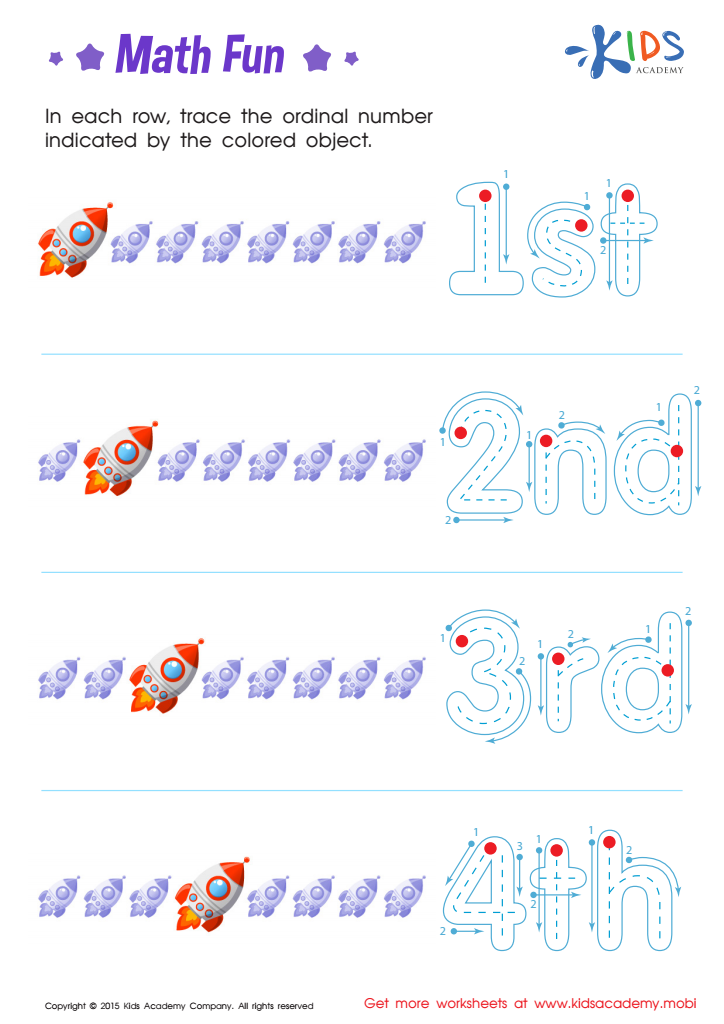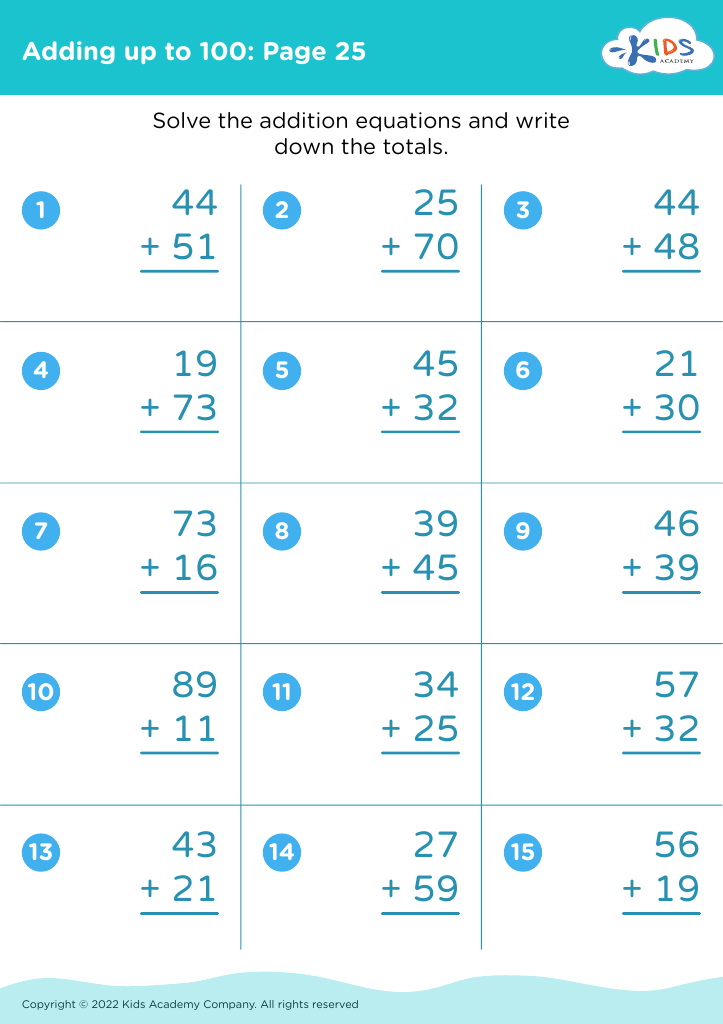Learning addition Addition & Subtraction Worksheets for Ages 3-9
3 filtered results
-
From - To
Welcome to our "Learning Addition & Subtraction Worksheets for Ages 3-9" page, designed to ignite a passion for math in young learners! Our engaging and interactive worksheets introduce the fundamentals of addition and subtraction through colorful illustrations and fun activities. Tailored for little learners, these resources foster numerical understanding while developing critical thinking skills. Whether at home or school, our printable worksheets cater to various learning styles, making math enjoyable and accessible. Start your child’s math journey with our easy-to-understand exercises, designed to boost confidence and competence in arithmetic. Let’s make learning fun together with our specially crafted worksheets!


Ordinal Numbers: Math Fun Worksheet
Learning addition and subtraction is crucial for children aged 3-9, as it lays the foundation for future mathematical understanding and problem-solving skills. Early number skills are directly linked to later academic success, as children who grasp these concepts early on tend to perform better in mathematics as they progress through school.
Fostering an understanding of addition and subtraction enhances children's cognitive development, promoting logical thinking and reasoning. These foundational skills also empower children to make sense of the world around them; whether it’s managing pocket money, cooking measurements, or understanding time, numeracy is a vital life skill.
Engagement in mathematical activities can also boost a child’s confidence and improve their self-esteem, as they gain mastery over skills that are integral to everyday life. For parents and teachers, laying this groundwork is essential not only for academic achievement but also for nurturing a child’s love for learning.
Moreover, instilling these skills at a young age develops perseverance and resilience as children learn to tackle challenges and find solutions. In fostering a positive mathematical mindset, parents and educators can create an environment that supports curiosity and encourages lifelong learning.


 Assign to My Students
Assign to My Students
















